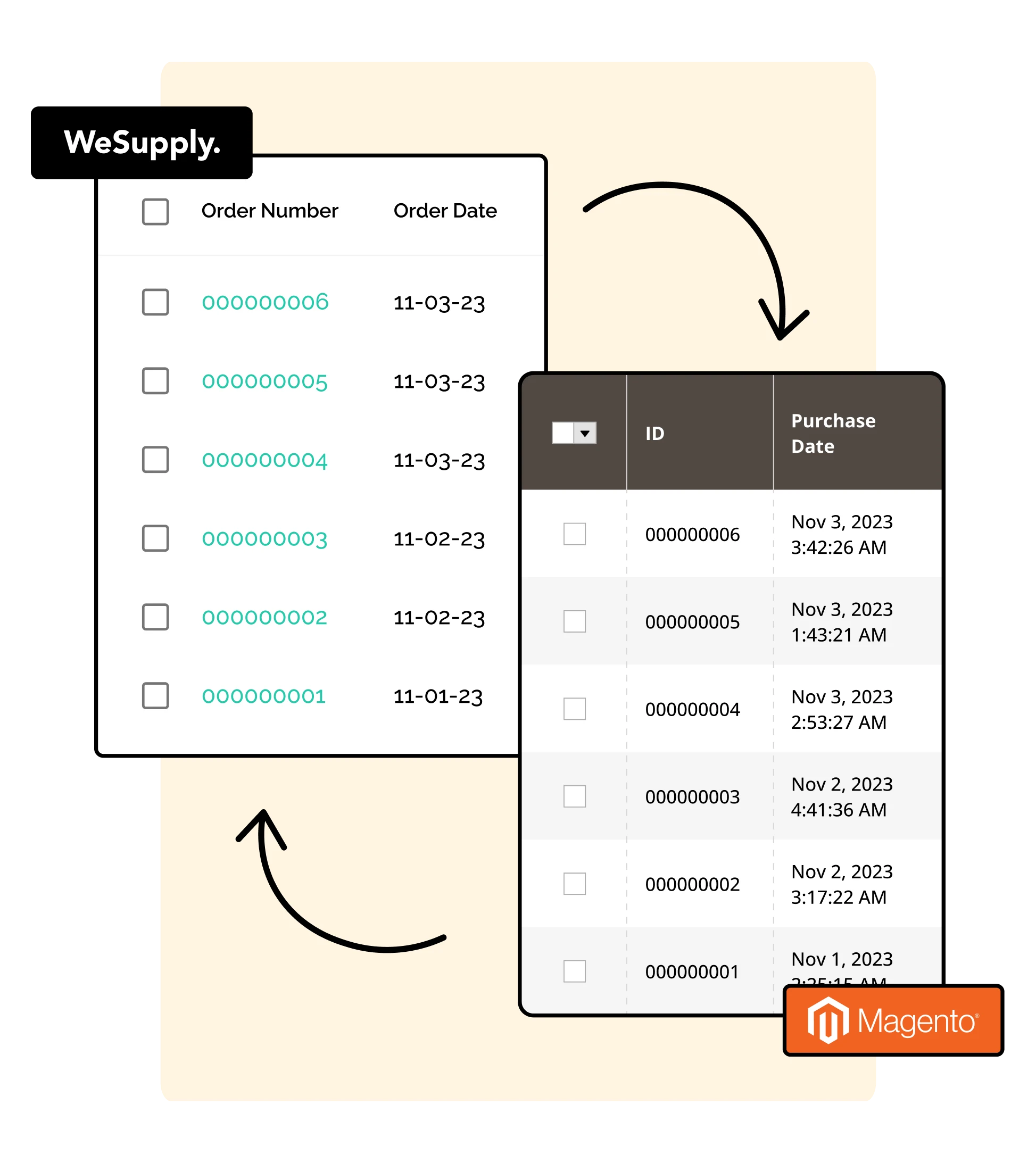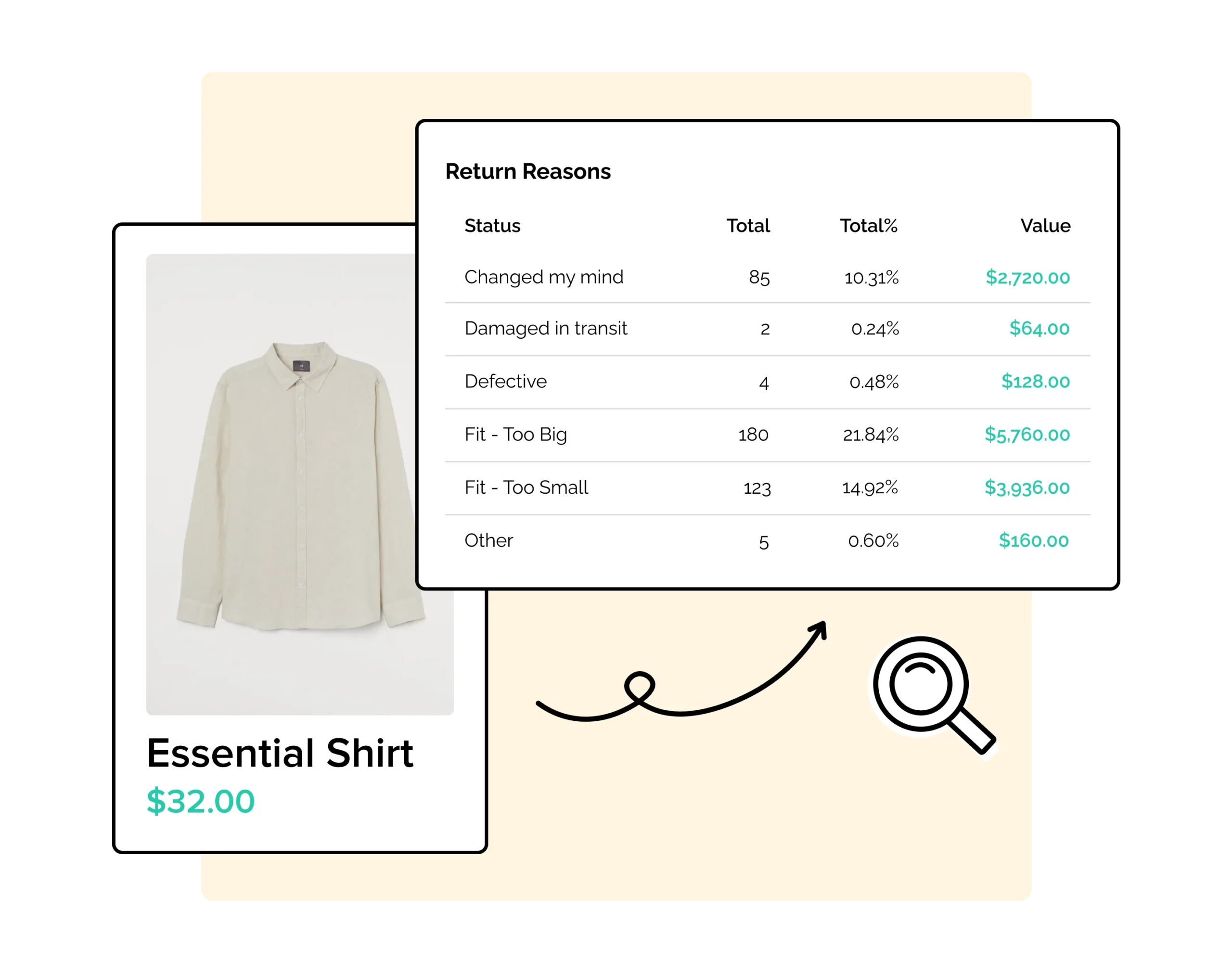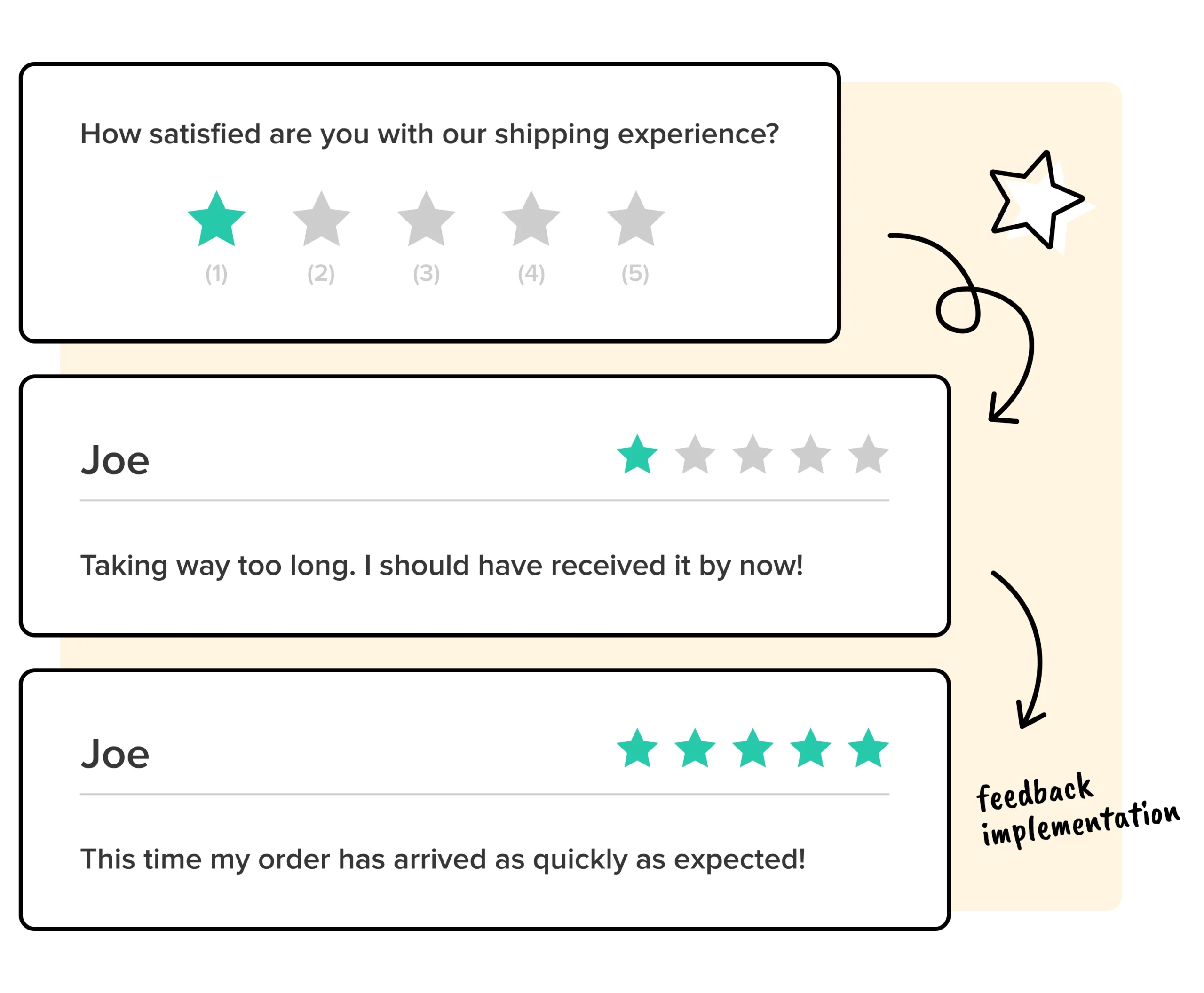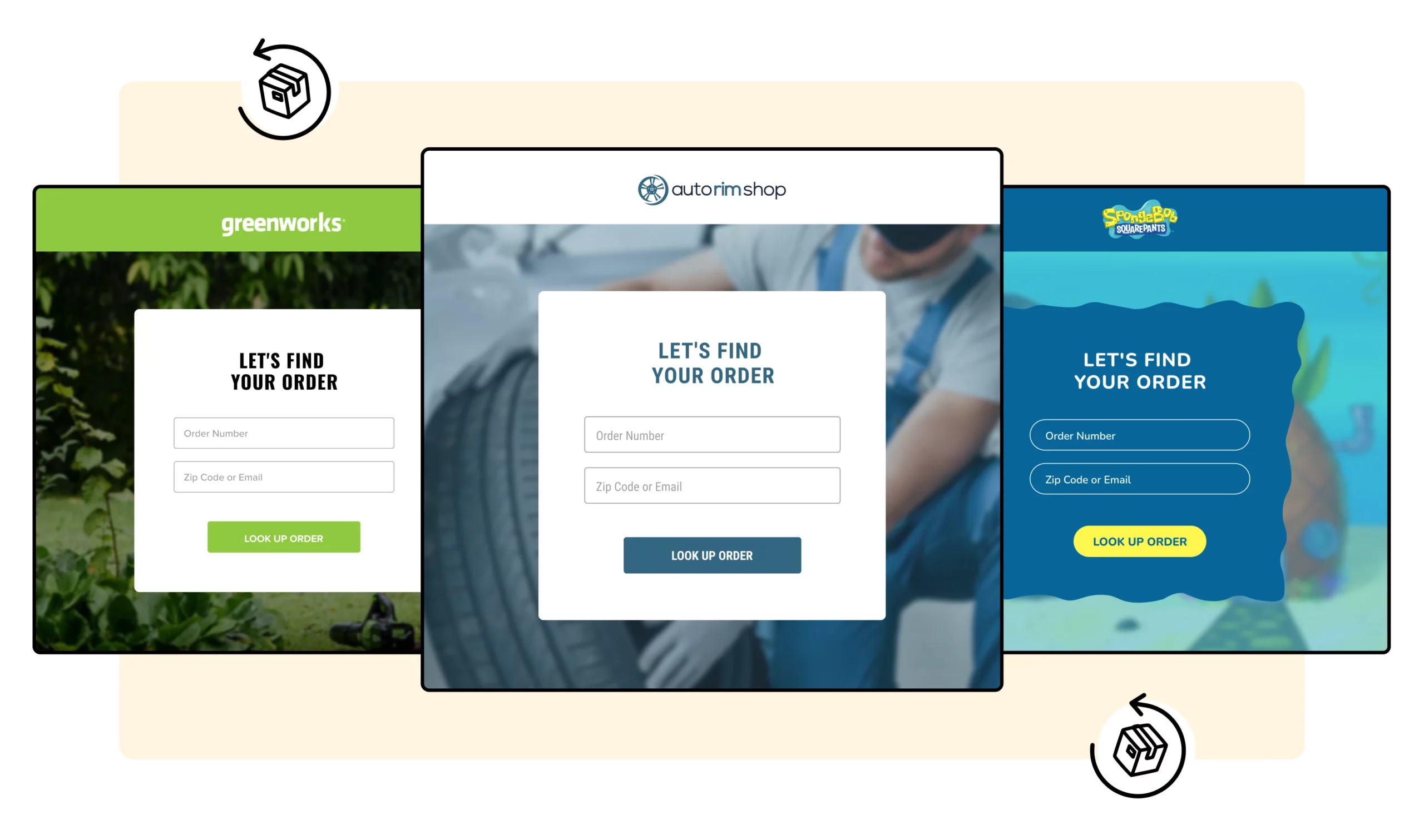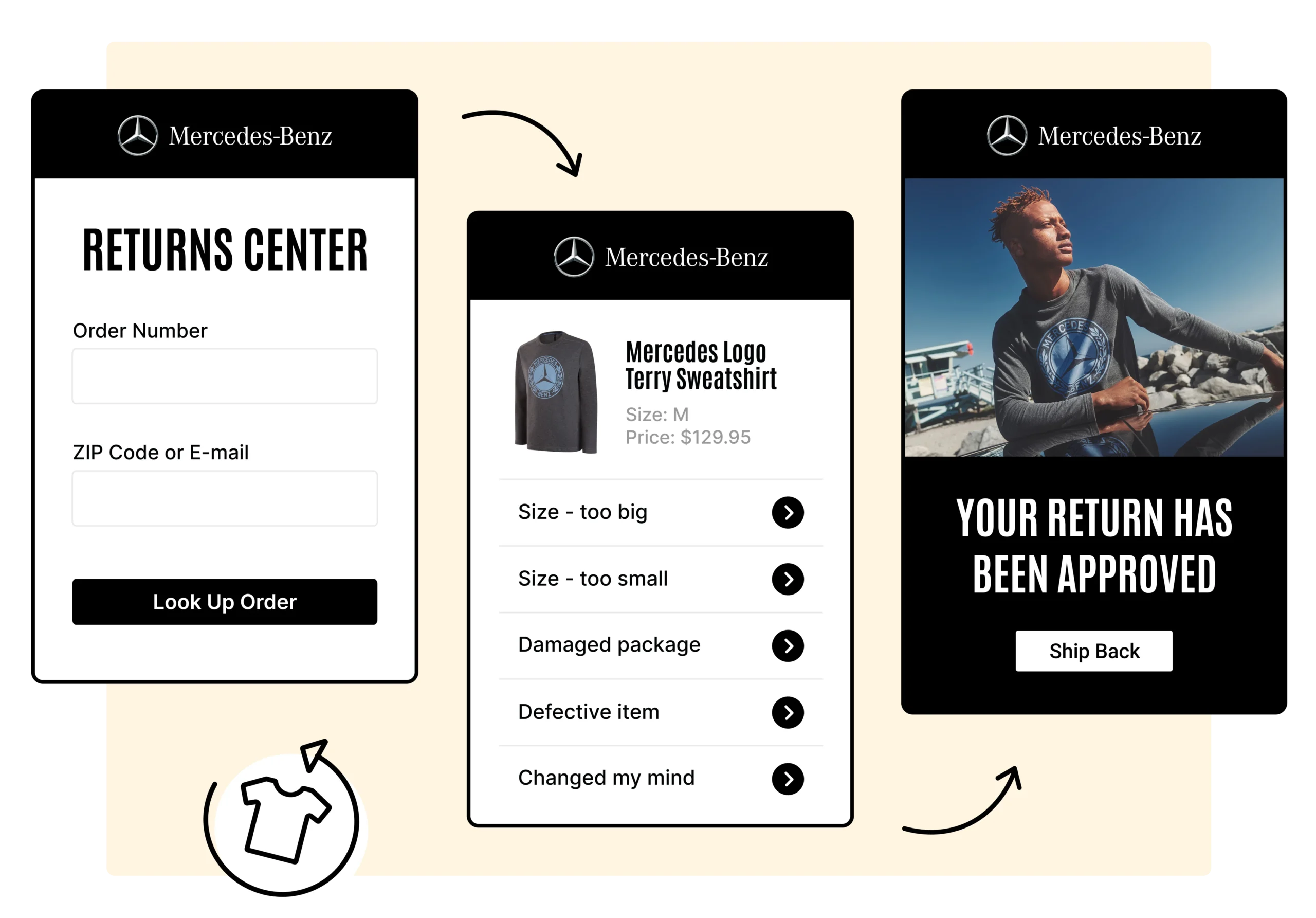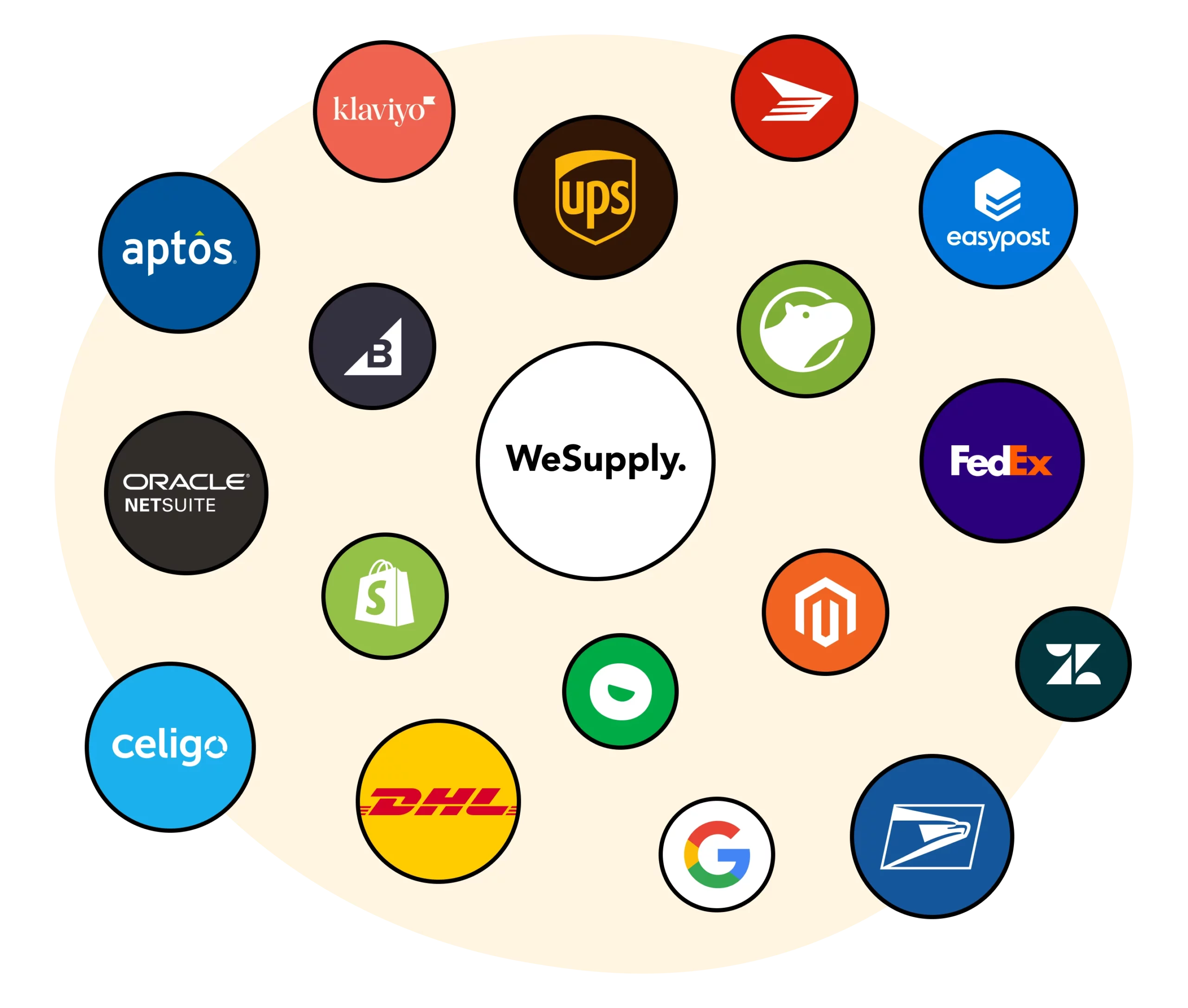Best Ecommerce Platform for Your Business: A Comprehensive Guide
Deciding on an ecommerce platform is crucial for your online business success. You may wonder which platform will drive growth, streamline operations, and offer the best value for your investment. Our guide simplifies this decision, helping you compare features, assess costs, and understand scalability. We highlight top ecommerce platforms tailored to diverse business needs, so you can confidently choose a solution that promises growth, efficiency, and customer satisfaction.
Key Takeaways
-
Ecommerce platforms are essential for business growth, enabling global market access and providing tools for SMEs to compete with larger companies.
-
Selecting the right ecommerce platform involves evaluating security, scalability, pricing, and whether to choose a hosted or self-hosted solution, adjusting for business size and technical resources.
-
Leading ecommerce platforms offer diverse features and target specific business needs, with trends like omni-channel selling, AI integration, and emerging payment methods influencing future developments.
-
WeSupply optimizes ecommerce by integrating with platforms like Shopify, BigCommerce, WooCommerce, Square, and Clover, streamlining post-purchase processes with automated tracking, branded experiences, simplified returns, and advanced analytics. It supports various delivery methods and integrates with key marketing and helpdesk tools, enhancing efficiency and customer satisfaction. Unlock a seamless ecommerce experience with WeSupply. Get started today!
Introduction to Ecommerce Platforms
Ecommerce platforms are the backbone of online business, enabling entrepreneurs to showcase their products, connect with customers, and transact business around the clock and across the globe. These platforms have evolved from basic web stores to advanced sales solutions, underpinning the growth of countless successful ventures.
Next, we are going to examine the role of ecommerce platforms and how they have evolved over time.
Understanding the Role of Ecommerce Platforms in Business Growth
Ecommerce platforms have become indispensable tools for businesses seeking to extend their reach beyond local markets. They break down geographical barriers and open up new avenues for growth, allowing businesses to tap into a global consumer base. These platforms aren’t just virtual storefronts; they’re integral to:
-
market research
-
business model refinement
-
customer service
-
a host of other critical business functions.
Ecommerce platforms prove to be significantly transformative for small and medium-sized enterprises (SMEs). They provide the tools and infrastructure that allow these businesses to compete with larger players, increase their sales growth rate, and expand their customer base. In essence, ecommerce platforms level the playing field, giving SMEs the opportunity to succeed in the competitive world of online retail.
The Evolution of Ecommerce: From Basic Web Stores to Advanced Sales Solutions
The ecommerce landscape has undergone a significant evolution since the launch of the first ecommerce platform, the Boston Computer Exchange, in 1982. Initial platforms were rudimentary, offering basic functionalities like product listings and online payments. However, as technology advanced and consumer behaviors shifted, ecommerce platforms evolved to meet these new demands.
Today’s ecommerce platforms are much more sophisticated, offering a wealth of features designed to enhance the user experience. Some of these features include:
-
Intuitive navigation
-
Robust site search capabilities
-
Diverse payment methods
-
Advanced security protocols
These platforms provide the necessary marketing tools for businesses to succeed in an increasingly digital world. And as technology continues to evolve, we can expect ecommerce platforms to adapt and innovate in response.
Choosing the Right Ecommerce Platform for Your Business
Choosing the right ecommerce platform for your business is a critical decision, as it directly impacts your ability to deliver a seamless shopping experience, engage with your customers, and ultimately drive revenue. There are several factors to consider when making this decision, including the platform’s features, pricing, scalability, and whether to opt for a hosted or self-hosted solution.
Next, we will examine these considerations more thoroughly.
Factors to Consider When Selecting an Ecommerce Platform
A variety of factors need to be taken into consideration when evaluating ecommerce platforms. Chief among these is the platform’s security capabilities. With cyber threats on the rise, it’s critical that your ecommerce platform offers robust security measures to protect your business and your customers’ information.
Another significant factor to take into account is scalability. As your business grows, so too will your need for more bandwidth, more storage, and more features. Accordingly, your ecommerce platform should be able to scale with you and accommodate your business’s evolving needs.
Pricing is another key consideration. Different platforms offer different pricing structures, and it’s important to understand these structures and how they align with your business model. For instance, some platforms may charge a flat monthly fee, while others may base their fees on the volume of transactions processed. Choosing the right pricing structure can help you maximize your profits while maintaining a competitive edge in the market.
Hosted vs. Self-Hosted Ecommerce Solutions: Pros and Cons
When it comes to ecommerce solutions, businesses have two main options: hosted and self-hosted. Hosted solutions are cloud-based platforms that manage all the technical aspects of running an ecommerce site, including server maintenance, security, and updates. Self-hosted solutions, on the other hand, require businesses to handle these tasks themselves, offering more control and customization but also more responsibility.
Both options have their pros and cons. Web hosting solutions, either hosted or self-hosted, provide peace of mind and simplicity, making them a good option for businesses with limited technical resources. However, they may offer limited customization options and can be more expensive in the long run.
Self-hosted solutions offer more control and flexibility, but they require a higher level of technical expertise and can have higher setup and maintenance costs. Ultimately, the best choice will depend on your business’s specific needs, resources, and goals.
In-Depth Platform Reviews: The Top Contenders for 2024
Now that we’ve covered the key considerations in selecting an ecommerce platform, let’s take a closer look at some of the top contenders for 2024. We’ll delve into their features, pricing, and target audience to help you make an informed decision.
Shopify: The All-in-One Ecommerce Solution for Every Business Size
Shopify is a renowned all-in-one ecommerce platform that caters to businesses of all sizes. Known for its versatile features and robust functionality, Shopify offers a comprehensive suite of tools, including:
-
Personalized customization
-
Search capabilities
-
High-quality media display
-
SEO tools
All designed to create an exceptional shopping experience.
In addition to its impressive feature set, Shopify stands out for its user-friendly interface. It’s designed to make it easy for new ecommerce businesses to set up their online stores, reducing the hurdles for new merchants and simplifying the process of launching an online business.
Whether you’re a small start-up or a large enterprise, Shopify’s flexible plans and extensive capabilities make it a solid choice for your ecommerce needs.
The WeSupply and Shopify integration streamlines your post-purchase process, offering automated tracking, email, and SMS notifications for a branded customer experience. It simplifies order lookup, supports split package delivery, and enhances order management with visibility into unfulfilled orders and delivery issues. This integration also promotes self-service returns and connects with various third-party tools to enhance customer service. Elevate your Shopify store’s post-purchase journey today and Download the Official WeSupply Shopify App now!
Wix: Customizable Websites for Ecommerce Beginners
Wix is a platform that blends website building and ecommerce capabilities, making it a perfect option for ecommerce beginners. It offers:
-
A user-friendly drag-and-drop editor
-
A wide array of attractive templates
-
Tools needed to create a beautiful and functional online store without needing extensive technical knowledge.
One standout feature of Wix is its focus on customization. It offers a variety of customization options for your ecommerce website, including:
-
Personalizing the functionality of your store
-
Establishing specific store policies
-
Modifying checkout fields
-
Customizing email templates
-
Adapting product pages to align with your individual business needs
If you’re a beginner in ecommerce and value customization and ease-of-use, Wix could be an excellent choice.
BigCommerce: Scaling Enterprise Ecommerce with Advanced Features
BigCommerce is an enterprise-level ecommerce platform known for its:
-
advanced features
-
scalability
-
open API for scalable ecommerce system development
-
adaptability to address fluctuations in demand
This makes it an ideal choice for businesses looking to scale.
BigCommerce offers a range of pricing plans tailored to accommodate different business sizes, including:
-
Standard plan
-
Plus plan
-
Pro plan
-
Enterprise plan
The pricing of the Enterprise plan is customized to meet the specific requirements of each customer. If you’re looking for a platform with advanced capabilities and flexibility to grow with your business, BigCommerce may be the platform for you.
The WeSupply x BigCommerce integration streamlines the ecommerce post-purchase process, cutting down on WISMO calls through automated order tracking, shipping notifications, and a fully branded tracking experience. It simplifies managing split packages, unfulfilled orders, and delivery issues, while offering easy order lookup and detailed tracking. The integration supports self-service returns, connects with key helpdesk, marketing, and personalization tools, and enhances customer service with a Store Locator and multiple pickup options. This solution ensures a seamless journey from purchase to pickup for both online and in-store customers.
WooCommerce: Leveraging WordPress for Your Ecommerce Store
WooCommerce is a versatile open-source software solution designed specifically for WordPress websites. As a free ecommerce plugin, it seamlessly transforms any WordPress site into a comprehensive online store, making it a crucial resource for WordPress users seeking to launch and manage their ecommerce ventures.
One of the standout features of WooCommerce is its ability to integrate with a variety of vital business tools and software, including ERP systems and back-office applications. If you’re already using WordPress and want to add ecommerce capabilities without switching platforms, WooCommerce could be an excellent option for you.
WeSupply’s integration with WooCommerce enhances your eCommerce site by adding automated order tracking, shipping notifications, and a personalized tracking experience. This seamless combination leverages WooCommerce’s customizable, open-source platform to improve the post-purchase journey, ensuring a smooth and efficient customer experience. Elevate your WooCommerce store’s customer experience today. Book a demo with WeSupply now!
Squarespace: Design-First Websites with Ecommerce Capabilities
Squarespace is well-known for its design-centric approach to website building, making it a great choice for businesses that prioritize aesthetics. Squarespace offers a commerce solution with a strong emphasis on design, allowing for attractive storefronts with payment processing and order management capabilities.
But Squarespace isn’t just about looks. It’s also incredibly user-friendly, offering intuitive tools and comprehensive resources to help ecommerce beginners get their online stores up and running in no time. If you’re in the market for a platform that combines beautiful design with powerful ecommerce capabilities, Squarespace could be the platform for you.
Big Cartel: Ecommerce Simplified for Artists and Makers
Big Cartel is a platform that focuses on independent artists, designers, and small creative businesses. It offers a comprehensive suite of features, including:
-
Simple pricing
-
Simplified sales and traffic data
-
Ecommerce integrations
-
Free tutorials
All designed to make adobe commerce as straightforward as possible for its target audience.
In addition to its simplicity, Big Cartel offers a variety of customization options, including:
-
Customizable themes and templates
-
Ability to add your own logo and branding
-
Custom domain name
-
Customizable product pages and categories
These options allow artists and makers to create a platform that truly reflects their brand and products. If you’re an artist or maker looking for a simple, easy-to-use ecommerce solution, Big Cartel could be the perfect fit.
Square Online: Integrating In-Person and Online Sales Seamlessly
Square Online is an ecommerce platform that seamlessly integrates in-person and online sales. By synchronizing inventory across physical and digital channels, Square Online ensures a consistent and up-to-date catalog for businesses.
In addition to its seamless integration, Square Online offers a range of functionalities that cater to both physical and online stores. These include features such as digital items, event ticketing, and integrations like live Instagram feeds, making it a versatile solution for businesses operating in both realms. If you’re a business with both a physical storefront and an online presence, Square Online could be an excellent choice for you.
WeSupply and Square integration merges advanced post-purchase features with Square’s all-encompassing eCommerce tools, including software, hardware, and financing options. This powerful combination enhances customer experiences with automated tracking and notifications, while supporting your business’s growth and operational efficiency.
OpenCart: The Open-Source Solution for Tech-Savvy Retailers
OpenCart is an open-source ecommerce platform developed in PHP, offering a flexible and scalable solution for tech-savvy retailers. With extensive customization capabilities, OpenCart provides businesses with the tools and flexibility they need to take full control of their online store.
OpenCart is not just for tech-savvy retailers; it’s also a robust platform that offers a comprehensive range of features. Some of the key features of OpenCart include:
-
An admin dashboard for managing the online store
-
Various shipping and payment options
-
Support for multiple currencies and languages
-
SEO-friendly URLs
-
Product reviews and ratings
-
Discount coupons and promotions
-
Integration with popular payment gateways
-
Mobile-friendly design
With these features, OpenCart provides the necessary tools for a successful ecommerce business.
If you’re a retailer with a good understanding of technology and a desire for control over your online store, OpenCart could be the platform for you.
Magento 2: Advanced E-commerce Platform Customization
Magento 2, an advanced version of the Magento eCommerce platform, stands out as a highly customizable and scalable solution for businesses aiming to expand their online presence. Renowned for its robustness, Magento 2 offers a wide range of features, including extensive support for international sales, seamless third-party integrations, and powerful analytics to drive business growth. Its flexibility makes it an ideal choice for businesses of all sizes seeking to create a tailored shopping experience for their customers, thereby establishing it as one of the best eCommerce platforms in the market.
WeSupply’s integration with Magento 2 revolutionizes the e-commerce experience by automating order tracking and shipping notifications, offering a fully branded customer journey. It streamlines order management, providing visibility into shipment statuses and enabling seamless handling of both online and in-store orders. Customers benefit from self-service returns, detailed store information through a Store Locator, and flexible delivery options, including in-store and curbside pickup, ensuring a smooth end-to-end shopping experience.
Emerging Trends in Ecommerce Platforms
As we look to the future, there are several emerging trends in ecommerce that are worth watching. From omni-channel selling and social media integration to the rise of AI and machine learning, these trends are reshaping the ecommerce landscape and driving innovation across the industry.
Next, we will examine these trends more thoroughly and discuss how they are impacting ecommerce.
The Importance of Omni-Channel Selling and Social Media Integration
Omni-channel selling is a strategy that aims to deliver a seamless and consistent shopping experience across various sales channels, both online and offline. This approach has become increasingly important as consumers expect to interact with brands on their terms, whether that’s online, in-store, or through a mobile app. Businesses that embrace omni-channel selling are better positioned to meet these expectations and deliver a superior customer experience.
In addition to omni-channel selling, social media integration has also become a key trend in ecommerce. By integrating social media channels into their ecommerce platforms, businesses can extend their reach, engage with customers on a more personal level, and leverage the power of social networks to drive sales. Both of these trends underscore the importance of creating a cohesive and integrated shopping experience, regardless of how or where customers choose to engage with your brand.
Omni-Channel strategies do not stop after purchase. WeSupply recognizes the critical role of seamless order tracking and customer engagement across all channels in the post-purchase journey. By centralizing order management from various sources like websites, phone orders, apps, marketplaces, POS, OMS, and WMS, WeSupply ensures a unified and reliable tracking experience for customers, no matter where they make their purchase. This approach not only improves the shipping process but also significantly enhances the brand experience through:
Key features include:
- Omnichannel Tracking: Centralizes all orders into one seamless experience, ensuring reliable order tracking across all purchasing platforms.
-
-
Offers a branded order and return tracking page to keep customers engaged and reduce support calls.
-
Integrates social media links and other communication platforms on tracking pages, taking your marketing efforts to the next level and offering an improved post-purchase experience.
-
Elevate your omni-channel selling and enhance customer satisfaction with seamless tracking and engagement. Dive into the future of post-purchase excellence. Get started with WeSupply now!
Fully customizable branded tracking page
Book a quick call with our experts to see how WeSupply can help you tell your brand story, promote new categories or showcase your latest sale. Our Branded Tracking Page is fully customizable by your team in less than 10 minutes.
Leveraging AI and Machine Learning for Enhanced Ecommerce Experiences
Artificial intelligence (AI) and machine learning are having a profound impact on ecommerce, driving advancements in areas such as personalization, customer service, and inventory management. By leveraging these technologies, ecommerce platforms can deliver a more personalized and engaging shopping experience, driving customer loyalty and increasing sales.
Machine learning, in particular, is playing a key role in enhancing personalization in ecommerce. By analyzing large amounts of data, machine learning algorithms can:
-
Identify patterns
-
Make predictions
-
Enable ecommerce platforms to offer personalized recommendations
-
Tailor marketing messages
-
Enable predictive ordering
As these technologies continue to evolve, we can expect them to play an increasingly important role in shaping the future of ecommerce.
WeSupply offers in-depth insights into returns and logistics. This innovative approach aids businesses in comprehensively understanding and optimizing their post-purchase processes.
Key areas include:
- Return Analytics: Provides insights into the reasons behind customer returns, identifying the most returned products, serial returners, and offering actionable insights to reduce return rates and improve profitability through better process, product, and policy management.
- Logistics Analytics: Emphasizes the importance of a data-driven approach to enhance the post-purchase customer experience. Tools to measure Customer Satisfaction (CSAT) and Net Promoter Score (NPS) are provided, allowing for continuous refinement based on customer feedback and logistics performance.
These capabilities ensure businesses can not only track but also improve their ecommerce operations and customer satisfaction by leveraging the latest in AI and Machine Learning technology.
The Future of Payment Processing: Cryptocurrency and Mobile Wallets
The future of payment processing in ecommerce is being shaped by the rise of new technologies and trends. One of these is the growing popularity of cryptocurrency for online transactions. As a digital or virtual currency that uses cryptography for security, cryptocurrency offers a number of benefits for ecommerce, including lower transaction fees, improved security, and the ability to make cross-border transactions more easily.
Mobile wallets are another trend that’s shaping the future of payment processing in ecommerce. Mobile wallets offer a convenient and secure way for customers to store and use their payment information, making it easier for them to make purchases on the go. As more and more consumers use their smartphones for shopping, we can expect mobile wallets to become an increasingly important feature of ecommerce platforms.
WeSupply and Clover integration marks a forward step in ecommerce payment processing, blending Clover’s all-in-one payment capabilities with WeSupply’s post-purchase enhancements. This synergy streamlines transactions and boosts customer satisfaction, setting a new standard for ecommerce efficiency and experience.
Building for the Future: Scalability and Flexibility
Your ecommerce needs will grow alongside your business. That’s why it’s important to choose an ecommerce platform that’s both scalable and flexible. A scalable platform will be able to handle increased traffic and sales volume as your business expands, while a flexible platform will be able to adapt to changing business needs and trends.
Next, we will discuss how to plan for growth and select a platform that can scale with your business.
Planning for Growth: How to Choose a Platform That Grows with You
It’s vital to select an ecommerce platform that can scale with your business when planning for growth. This means looking for a platform that can:
-
Handle an increase in traffic, products, and sales volume without sacrificing performance
-
Integrate with other systems and tools
-
Have built-in features that can help your business grow
Scalability is not just about being able to handle more traffic; it’s also about being able to integrate with other systems and tools, and having built-in features that can help your business grow.
Beyond scalability, the features and capabilities of the ecommerce platform should also be taken into account. This includes everything from the user interface and design options to the payment processing and security features. By carefully evaluating the platform’s features and capabilities, you can ensure that it will be able to meet your business’s unique needs and requirements.
Transitioning Between Ecommerce Platforms: When and How to Migrate
While it’s important to choose the right ecommerce platform from the start, there may come a time when you need to transition to a different platform. This could be due to a number of reasons, such as the need for more advanced features, better scalability, or lower costs. However, migrating to a new platform can be a complex and potentially risky process, so it’s important to plan carefully to ensure a smooth transition.
When planning a platform migration, it’s important to consider factors such as data loss and search engine optimization. To prevent data loss, it’s crucial to implement data encryption during the migration process, provide comprehensive training on the new platform for staff, and establish robust backup procedures and contingency measures. To preserve SEO ranking, it’s important to meticulously plan the migration process, gather ranking data before the transition, and fine-tune the new platform to ensure optimal SEO performance.
Ecommerce Platform Selection Checklist
Selecting the right ecommerce platform for your business can be a daunting task, with so many options to choose from and so many factors to consider. To help you navigate this process, we’ve put together a checklist of key features to look for and steps to take when assessing your business needs.
Key Features to Look for in an Ecommerce Platform
A variety of features should be considered when evaluating ecommerce platforms. First and foremost, you’ll want to look at the platform’s user-friendliness. This includes factors such as the platform’s interface, navigation, and design capabilities.
Next, consider the platform’s security features. With cyber threats on the rise, it’s crucial that your ecommerce platform offers robust security measures to protect your business and your customers’ information. Other key features to look for include payment options, inventory management capabilities, and customer support. Having a platform with a comprehensive set of features will ensure that you’re well-equipped to run your online business successfully.
Assessing Your Business Needs: A Step-by-Step Guide
Understanding your business’s unique needs and requirements is the first step before choosing the right ecommerce platform for your business. This involves evaluating:
-
Your business model
-
Your target audience
-
Your product catalog
-
Your technical resources
Once you have a clear understanding of your business needs, you can start evaluating different ecommerce platforms. Consider factors such as the platform’s features, pricing, scalability, and customer support. It’s also a good idea to read reviews and case studies, and to take advantage of free trials where available. This will help you get a feel for how the platform works and whether it’s a good fit for your business.
Enhancing Ecommerce Success: The Essential Role of Post-Purchase Solutions with WeSupply
It is equally important that an ecommerce platform is integrated with a post-purchase software like WeSupply, which can significantly enhance the customer experience after the sale. WeSupply offers a comprehensive suite of features designed to streamline the return process, boost customer loyalty, and ultimately contribute to a successful ecommerce strategy.
Key features include:
- Branded Returns Portal: Offers a cohesive, branded experience for returns, enhancing customer loyalty.
-
Instant Credit for Exchanges: Encourages exchanges over refunds, reducing return rates and boosting average order value.
-
Self-Service Returns: Enables a frictionless return experience by giving customers control over the process.
-
Flexible Returns Rules: Allows the creation of return policies that can adapt to various use cases.
-
Customer Return Feedback: Collects data on return reasons and requests proof to prevent return fraud, saving on transportation costs.
-
QR Code Return Labels: Simplifies the return process with QR codes, eliminating the need for printing.
-
Returns Tracking and Notifications: Keeps customers informed about their return status and offers personalized post-purchase deals via email and SMS, with a high open rate.
-
Seamless Integrations: Easily connects with hundreds of third-party tools, integrating order and returns data with existing API-driven tools to deliver an incredible customer experience and save money.
Discover how WeSupply can revolutionize your post-purchase experience and drive customer satisfaction. Book a demo today to see the difference for yourself!
Conclusion: The Future of Ecommerce and Platform Innovation
As demonstrated, ecommerce platforms have a significant role in the success of online businesses. From simplifying the process of setting up an online store to facilitating global expansion, these platforms provide the tools and infrastructure that businesses need to succeed in the digital marketplace. But as technology continues to evolve, so too will the capabilities of these platforms.
How Ecommerce Platforms Are Shaping the Retail Landscape
Ecommerce platforms are reshaping the retail landscape in profound ways. They’re breaking down geographical barriers, democratizing the retail industry, and providing businesses with unparalleled access to global markets. As a result, businesses are no longer confined to their local markets; they can now reach customers around the world, 24/7.
But it’s not just about expanding reach. Ecommerce platforms are also enhancing the shopping experience, offering features such as personalized recommendations, seamless checkout processes, and responsive customer support. These platforms are setting a new standard for retail, creating a customer-centric shopping experience that’s tailored to the needs and preferences of today’s digital consumers.
Making the Right Choice: Final Thoughts on Selecting an Ecommerce Platform
Selecting the right ecommerce platform is a crucial decision for your business. It’s a decision that can have far-reaching implications for your business’s future growth and success. That’s why it’s important to take the time to carefully evaluate your options, understand your business’s unique needs, and choose a platform that’s capable of supporting your growth goals.
Ultimately, the best ecommerce platform for your business is the one that meets your unique needs, aligns with your business model, and offers the features and capabilities that you need to succeed. By doing your research, understanding your needs, and considering your growth plans, you can make an informed decision that sets your business up for success in the digital marketplace. Among the best ecommerce platforms, you will find the one that suits your business perfectly.
Summary
In conclusion, choosing the right ecommerce platform is a crucial step in establishing a successful online business. From understanding the role of ecommerce platforms in business growth to evaluating the top contenders for 2024, it’s clear that the choice of platform can have a significant impact on your business’s ability to thrive in the digital marketplace. As technology continues to evolve, it’s important to stay abreast of emerging trends and choose a platform that’s capable of adapting to these changes. By doing so, you can ensure that your business is well-positioned to capitalize on the opportunities that the digital revolution presents.
WeSupply is an essential enhancement for ecommerce, offering seamless integration with platforms like Shopify, BigCommerce, WooCommerce, Square, and Clover for payment processing. It enriches the post-purchase journey with automated order tracking, branded tracking experiences, simplified order lookup, management of split packages, comprehensive order management, and self-service returns. Additionally, it supports diverse delivery options, including in-store and curbside pickup, and integrates with various helpdesk, marketing, and personalization tools. Leveraging AI and Machine Learning, WeSupply provides deep insights into returns and logistics, helping businesses reduce return rates and boost profitability. This integration ensures a seamless, efficient shopping experience, making WeSupply a crucial component in optimizing ecommerce strategies.
Combat inconvenience with proactivity & self service
Book a quick call with our experts to see how WeSupply can help you make returns easy for your customers with a beautiful, self-service solution that makes their experience easier while also providing new ways to lower costs and earn back revenue.
Frequently Asked Questions
What is a eCommerce platform?
An ecommerce platform is a content management system (CMS) and commerce engine that helps websites manage products, purchases, and user relationships with online retailers, catering to businesses of all sizes and types, whether B2B or B2C, tangible goods or remote services.
What are the 3 types of e-commerce?
The three types of e-commerce are Business-to-Consumer (B2C), Consumer-to-Consumer (C2C), and Consumer-to-Business (C2B). You can engage in various online transactions across these three categories.
What ecommerce platforms does WeSupply integrate with?
WeSupply seamlessly integrates with Shopify, BigCommerce, WooCommerce, Square, Magento 2 and more, and offers a solution for Clover payment processing, making it versatile for various ecommerce businesses.
How does WeSupply enhance the post-purchase experience?
WeSupply automates order tracking, provides a branded tracking experience, enables easy order lookup, and offers self-service returns. It streamlines the return process and simplifies management of split packages and diverse delivery methods.


